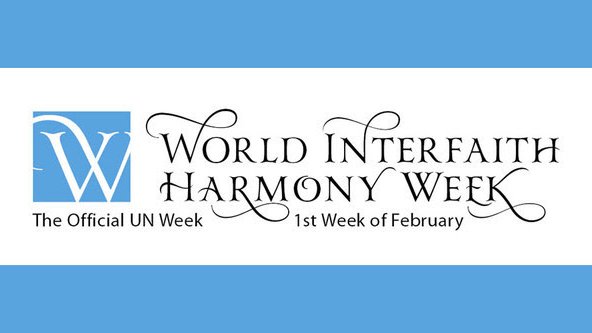World Interfaith Harmony Week
In resolution 65/5, the General Assembly announced the first week of February of each year as the World Interfaith Harmony Week between All Religions, Faiths and Denominations.
The General Assembly recognized the urgent need for dialogue between different faiths and religions in order to strengthen mutual understanding, harmony and cooperation among people, as well as the fact that it is a moral duty in all religions, beliefs and faiths to strive for peace, tolerance and mutual understanding.
Modern society faces a growing number of challenges and threats, including inequality, exclusion, violence and sectarianism. These global challenges are compounded by local tensions and conflicts. Accordingly, the ability to live together becomes particularly relevant.
Learning and life experiences help people acquire the cross-cultural communication skills necessary for a successful life in our complex and diverse society. These skills allow us not only to appreciate diversity, but also to resolve conflicts in accordance with the values of pluralism and mutual understanding.
The majority of believers live in harmony with others, regardless of their religion, but in every religion there is also a radical minority that resorts to extreme forms of violence. Such actions are unacceptable in relation to the historical heritage and the teachings of all major religions. They contradict the provisions of the Universal Declaration of Human Rights, which asserts the right of everyone to freedom of thought, conscience and religion. It is extremely important that the majority of people can firmly resist the extremist forces.
The Royal Institute of Islamic Thoughts in Jordan has established an annual award for the World Week of Interfaith Harmony. The prize is awarded to the three best organizations, projects, and events that are recognized by the judges as the most successful in promoting interfaith harmony and developing religious understanding.
For Russia, with diversity of peoples, cultures and religions, the issues of interreligious and interethnic dialogue are fundamental. Religious leaders make a significant contribution to the stability of the country, to the prevention of extremism and terrorism, and people listen to their opinions.
In 1998, the Interreligious Council of Russia was formed, which included members of the Orthodox, Muslim, Jewish and Buddhist religious communities of the country.
The purpose of the Interreligious Council of Russia is to strengthen interreligious and interethnic peace, to counter the use of religious feelings to incite interethnic conflicts, and to promote traditional moral values, harmony, and stability in society.
At the time of the World Week of Harmonious Interfaith Relations, the UN General Assembly calls on all States to support, on a voluntary basis, the dissemination of ideas of interfaith harmony and goodwill in churches, mosques, synagogues, temples and other houses of worship around the world during this week.
The General Assembly recognized the urgent need for dialogue between different faiths and religions in order to strengthen mutual understanding, harmony and cooperation among people, as well as the fact that it is a moral duty in all religions, beliefs and faiths to strive for peace, tolerance and mutual understanding.
Modern society faces a growing number of challenges and threats, including inequality, exclusion, violence and sectarianism. These global challenges are compounded by local tensions and conflicts. Accordingly, the ability to live together becomes particularly relevant.
Learning and life experiences help people acquire the cross-cultural communication skills necessary for a successful life in our complex and diverse society. These skills allow us not only to appreciate diversity, but also to resolve conflicts in accordance with the values of pluralism and mutual understanding.
The majority of believers live in harmony with others, regardless of their religion, but in every religion there is also a radical minority that resorts to extreme forms of violence. Such actions are unacceptable in relation to the historical heritage and the teachings of all major religions. They contradict the provisions of the Universal Declaration of Human Rights, which asserts the right of everyone to freedom of thought, conscience and religion. It is extremely important that the majority of people can firmly resist the extremist forces.
The Royal Institute of Islamic Thoughts in Jordan has established an annual award for the World Week of Interfaith Harmony. The prize is awarded to the three best organizations, projects, and events that are recognized by the judges as the most successful in promoting interfaith harmony and developing religious understanding.
For Russia, with diversity of peoples, cultures and religions, the issues of interreligious and interethnic dialogue are fundamental. Religious leaders make a significant contribution to the stability of the country, to the prevention of extremism and terrorism, and people listen to their opinions.
In 1998, the Interreligious Council of Russia was formed, which included members of the Orthodox, Muslim, Jewish and Buddhist religious communities of the country.
The purpose of the Interreligious Council of Russia is to strengthen interreligious and interethnic peace, to counter the use of religious feelings to incite interethnic conflicts, and to promote traditional moral values, harmony, and stability in society.
At the time of the World Week of Harmonious Interfaith Relations, the UN General Assembly calls on all States to support, on a voluntary basis, the dissemination of ideas of interfaith harmony and goodwill in churches, mosques, synagogues, temples and other houses of worship around the world during this week.
